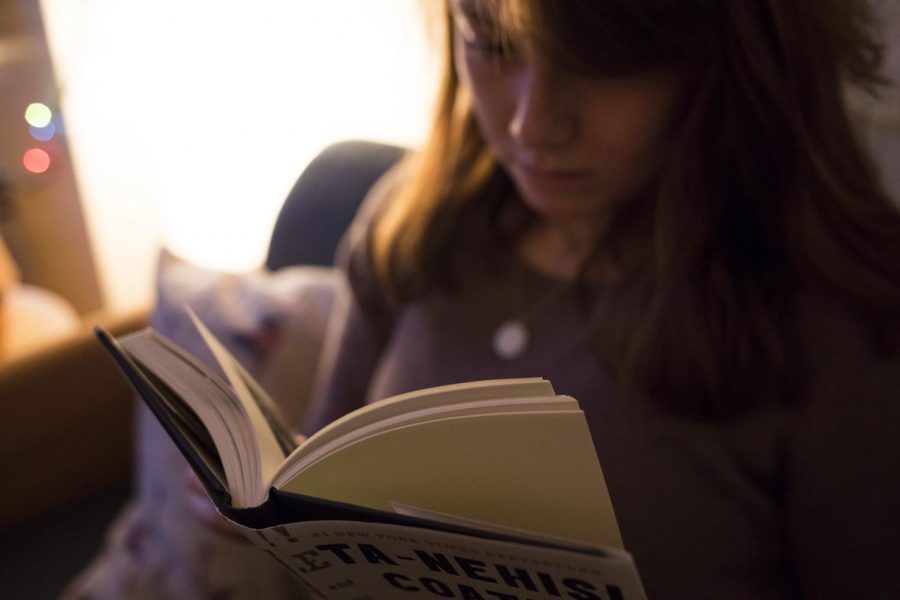Read the House Down
A student reads in her common room.
April 4, 2018
Remember when the highlight of your year was when the Scholastic book fair came to your school? The smell of the fresh paper blending with the stench of sweat and plastic that permeated the auditorium, resulting in an objectively gross but strangely comforting aroma. Those joys feel far removed for many students who struggle to formulate an answer when asked when they last read a book for anything besides school.
For a significant number of students in the United States, the answer is over a year ago. Among teens, rates of reading for pleasure go down each year, especially as they reach high school, according to Common Sense Media. Publishing houses and bookstores have suffered from this with many closing their doors over the past few years. But what has caused America’s drop in literature engagement? Has rigorous schoolwork sucked the magic out of Hogwarts? Or are our computers and smartphones to blame?
For many students, a lack of reading relates to a lack of time.
“[I read] so rarely,” Steinhardt first-year Jillian Harrington said. “I want to but during the school year it’s impossible.”
Exhausted after hours of studying, students rarely want to pick up a book to destress. It seems like too much work.
“It’s easier to just use my phone before bed than read,” Harrington said.
Further, those who do regularly read for pleasure find themselves reading less while in school. Tisch first-year Carolin Hedrick finds herself saving her reading for times when school isn’t in session.
“I read a lot on vacations,” Hedrick said. “It’s just hard to balance work and relaxation in school.”
With the influx of technology, many people become distracted by other forms of entertainment, robbing their eyes away from reading books. A sentiment shared by Steinhardt first-year Celine Seifi.
“I read more on my phone, like those articles on snapchat,” Seifi said. “I feel like technology is replacing books.”
Our phones and computers provide us with digestible and accessible entertainment. Whether it be a mindless game of Candy Crush or scrolling through the Instagram explore page, using technology takes up time that could have been spent finally picking up that self-help book your dad keeps telling you about.
If technology is the issue, then companies need to just adapt to the demand, which is exactly what Audible has done. Audible, an app on which you can download audio books, has reached out to many social media influencers with young audiences, such as Tyler Oakley, to make sponsorship deals. By using a familiar and admired face, Audible reaches a younger demographic and make listening to audiobooks desirable. When reading takes too much brain power, after annotating pages of essays for class, putting in headphones and relaxing is the ideal escape.
“I’d be more interested if it was an audiobook,” Seifi said.
It is clear that like any other industry, literature needs to adapt to the millennial customer base, which has the largest buying power and seeks to make consuming books as desirable as the other forms of entertainment that are thriving today. And if you want to start reading again and don’t know how, the answer is clear: put away your phone, laptop or any other distractions and just start.
You’ll be absorbed in the literary universe in no time.
Email Scott Hogan at [email protected].
Disclaimer: Jillian Harrington is a staff writer for Washington Square News.




























































































































































